Physical Address
304 North Cardinal St.
Dorchester Center, MA 02124
Physical Address
304 North Cardinal St.
Dorchester Center, MA 02124
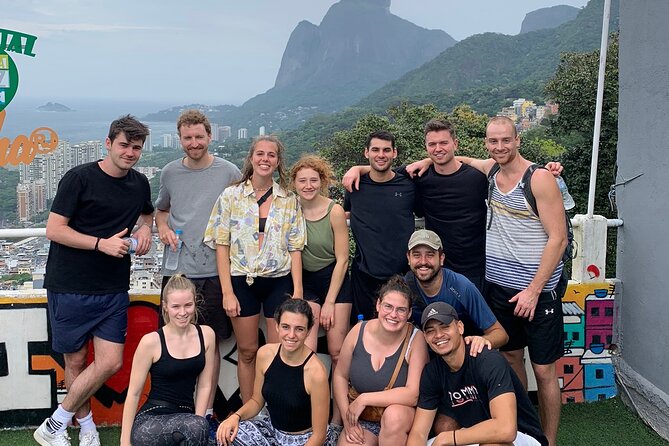
Beneath the grim stereotypes, favelas in Brazil harbor a vibrant culture, resourcefulness, and community spirit that challenge common misconceptions about these dynamic urban neighborhoods.
The term "favela" often conjures images of poverty, crime, and urban decay. But this simplistic view fails to capture the vibrant realities of these communities. Beneath the surface, favelas are dynamic hubs where resilient residents forge a strong sense of identity and belonging. Their stories reveal a tapestry of culture, resourcefulness, and community spirit that challenges common misconceptions. Exploring the real life behind the word "favela" offers a deeper understanding of urban Brazil and the diverse experiences that shape its neighborhoods.
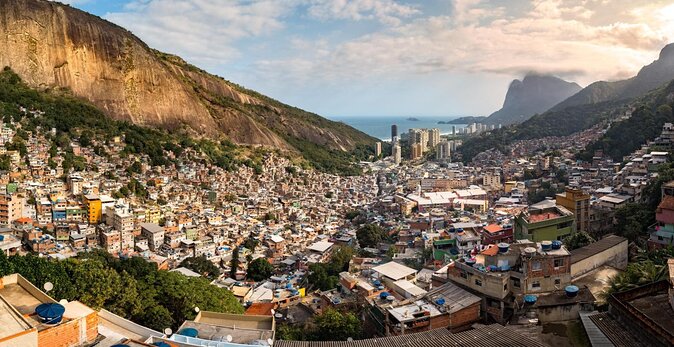
You can also read our reviews of more tours and experiences nearby.
Although often portrayed as crime-ridden and impoverished, Rio de Janeiro’s favelas are in fact vibrant communities filled with rich cultural traditions and a strong sense of identity.
Residents take pride in their neighborhoods, which feature colorful murals, local shops, and lively community centers. These tight-knit communities foster a profound sense of belonging, where neighbors support one another and celebrate shared heritage.
Far from the stereotypes, favelas are dynamic hubs of music, art, and entrepreneurship, defying simplistic narratives and offering visitors a chance to experience Brazil’s diverse urban culture firsthand.

Despite the prevalent misconceptions, Rio’s favelas aren’t the crime-ridden, impoverished enclaves often depicted in the media.
The Favela Lives Tour challenges these stereotypes, providing an immersive experience that highlights the vibrant communities within. Guides like Carolina and Carlos share personal insights, fostering a deeper understanding of favela culture.
Travelers consistently praise the safety and warmth of the neighborhoods, noting how the experience has enriched their perspectives.
While isolated issues may arise, the overwhelmingly positive reviews underscore the tour’s ability to shatter preconceptions and showcase the humanity at the heart of these urban communities.
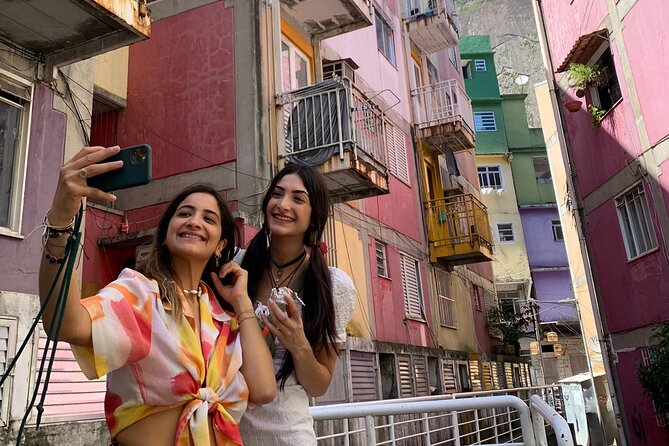
Navigating the complexities of favela life requires nuance and cultural awareness.
These vibrant communities possess intricate social structures and economies that defy stereotypes. Residents must contend with limited resources, high crime rates, and strained relations with authorities – yet they also exhibit profound resilience, solidarity, and entrepreneurial spirit.
Outsiders seeking to understand favela dynamics must approach with humility, respecting the inherent dignity of these neighborhoods. Engaging with community leaders and hearing diverse perspectives is crucial to moving beyond superficial portrayals.
Only then can the true vibrancy and resilience of favela life be fully appreciated.
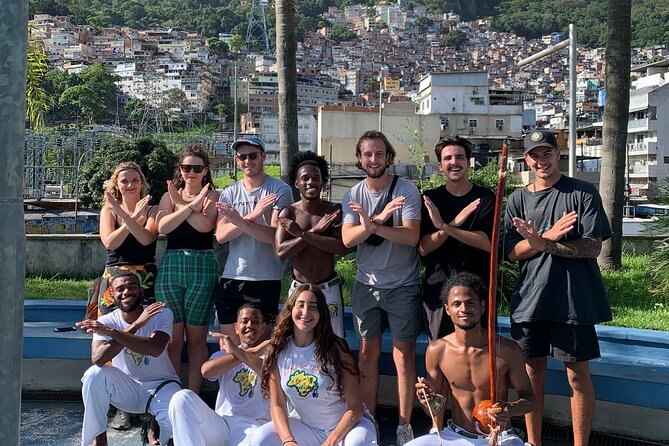
Favela residents demonstrate remarkable resourcefulness in the face of limited access to basic services and infrastructure. With little government support, they’ve devised innovative solutions to meet their needs.
Homes are built incrementally, often using repurposed materials. Residents rely on informal systems for water, electricity, and waste management. Small businesses thrive, providing essential goods and services.
Despite the challenges, a vibrant community spirit prevails, with neighbors supporting one another. Favela dwellers have an unwavering resilience, turning adversity into opportunity.
Their ingenuity and determination showcase the human capacity to adapt and overcome, even in the harshest of circumstances.
Beyond the resourceful solutions that allow favela residents to thrive, the vibrant culture and traditions of these communities offer a window into a distinct way of life.
Favela streets come alive with the rhythmic beats of samba, the lively chatter of neighbors, and the aromas of local cuisine. Residents take pride in their close-knit communities, fostering a sense of belonging that’s woven into daily rituals and celebrations.
From colorful murals adorning walls to the intricate handicrafts sold by local artisans, the cultural richness of the favelas is a testament to the resilience and creativity of its people.
Within the favelas, community organizations and local leaders play a vital role in addressing the needs and challenges faced by residents.
These community-driven initiatives:
Provide essential social services and infrastructure development
Advocate for policy changes to improve living conditions
Foster a sense of pride and belonging among residents
Offer educational and vocational programs to empower youth
Coordinate disaster response and relief efforts during crises
Through their tireless efforts, these organizations and leaders serve as the backbone of the favela communities, ensuring that their voices are heard and their needs are met.
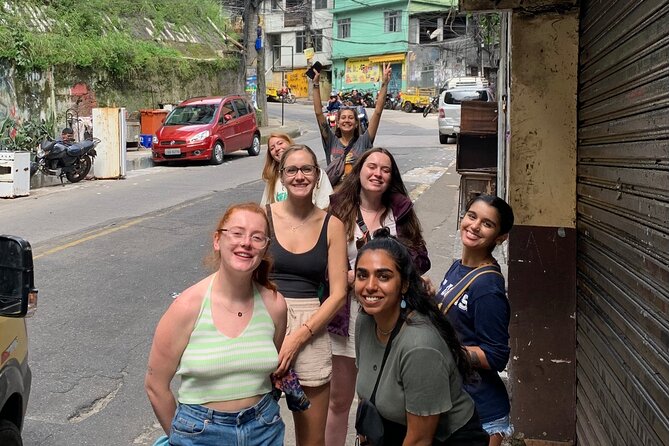
Despite the resilience and community spirit within the favelas, the socioeconomic realities faced by residents present significant challenges.
Poverty, limited access to quality education and healthcare, and high unemployment rates are pervasive. Many residents struggle to secure stable incomes, with informal work and small businesses serving as essential sources of livelihood.
Inadequate infrastructure, such as unreliable water and electricity supplies, further compound the difficulties. While community initiatives aim to address these issues, systemic inequalities continue to hinder progress.
Addressing the favelas’ socioeconomic realities requires holistic, long-term solutions that empower residents and promote sustainable development.
Though the socioeconomic challenges within the favelas are well-documented, the favela experience offers travelers a unique opportunity to gain invaluable insights and meaningful reflections.
Amidst socioeconomic challenges, the favela experience offers travelers invaluable insights and meaningful reflections.
By seeing the vibrant communities, visitors can:
Witness the resilience and ingenuity of the residents as they navigate complex systems
Appreciate the rich cultural tapestry woven through music, art, and cuisine
Gain a deeper understanding of the sociopolitical dynamics shaping the favela landscape
Challenge preconceived notions and develop empathy for the diverse lived experiences
Forge connections with locals, fostering cross-cultural exchange and mutual understanding
The favela tour provides a transformative lens, allowing travelers to go beyond stereotypes and uncover the real life behind the word "favela".
We've Also reviewed these nearby tours and experiences
The tour provides private transportation, and the guides prioritize safety, leading travelers through the favela with care. While not wheelchair accessible, service animals are allowed, and the area is near public transit.
Travelers can support the local economy by purchasing souvenirs and food from vendors within the favela during the tour. This directly benefits the community and provides an authentic cultural experience.
Wear comfortable, modest clothing and closed-toe shoes. Bring a small backpack, bottled water, and cash for souvenirs or tips. Avoid wearing expensive jewelry or valuables. The tour company will provide additional guidance to ensure a safe and enjoyable experience.
Respect residents’ privacy by avoiding intrusive photography, staying on designated paths, and being mindful of noise levels. Ask the guide for guidance on appropriate behavior. Be courteous and discreet when interacting with community members.
The Favela Lives Tour doesn’t have age restrictions, but a moderate fitness level is recommended. The tour isn’t wheelchair accessible, though service animals are allowed. Guests should consider their physical abilities before booking the experience.
The favelas of Rio de Janeiro are complex, multifaceted communities that defy simplistic stereotypes. Beneath the challenges faced by residents, a vibrant culture thrives, marked by resilience, solidarity, and a strong sense of identity. Engaging with the favela experience offers a deeper understanding of urban Brazil, shedding light on the diverse realities and extraordinary spirit that define these dynamic neighborhoods.